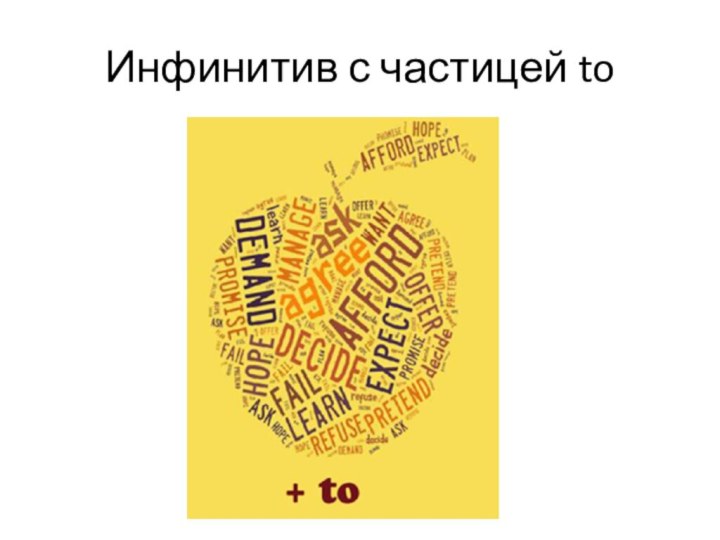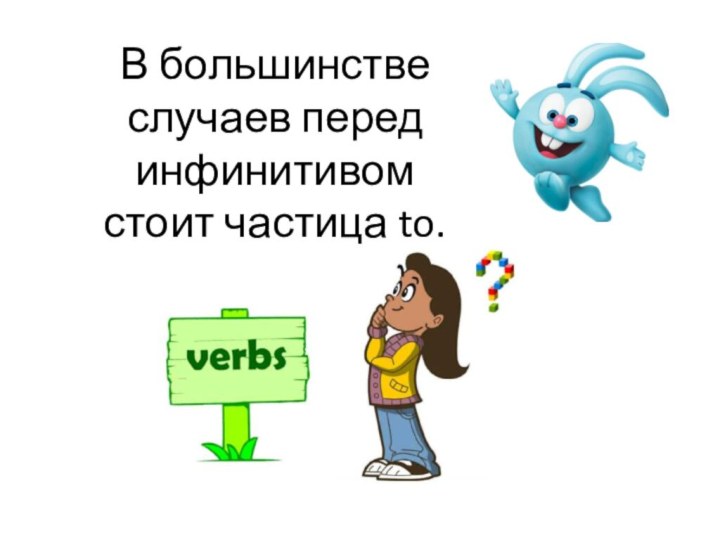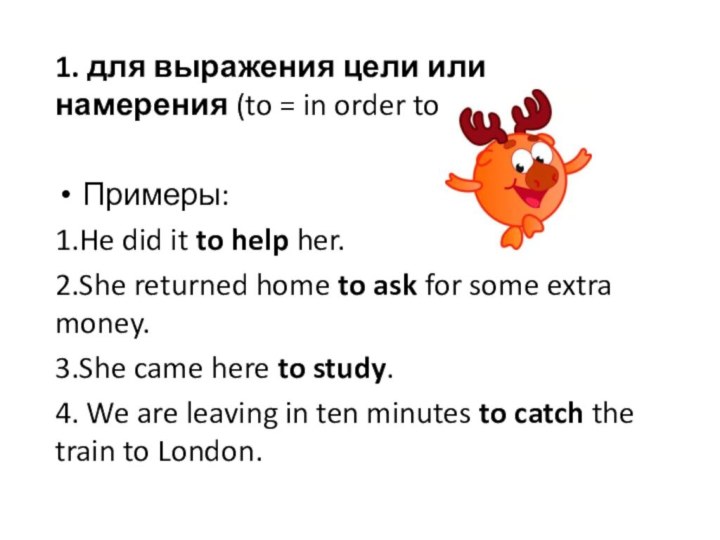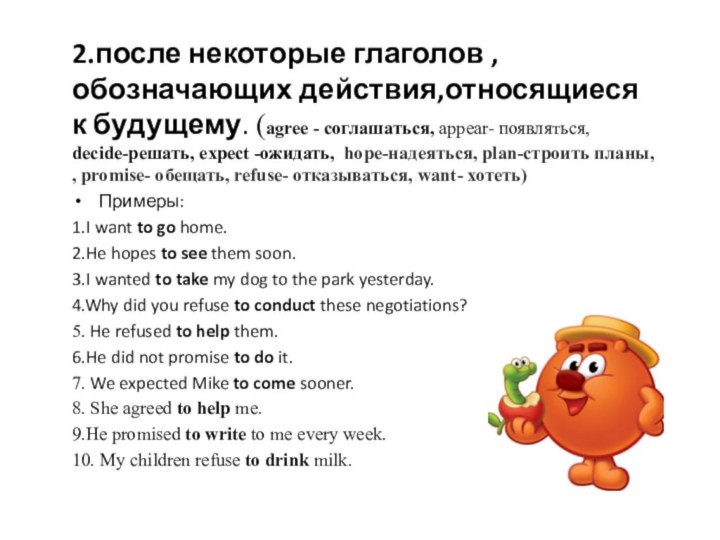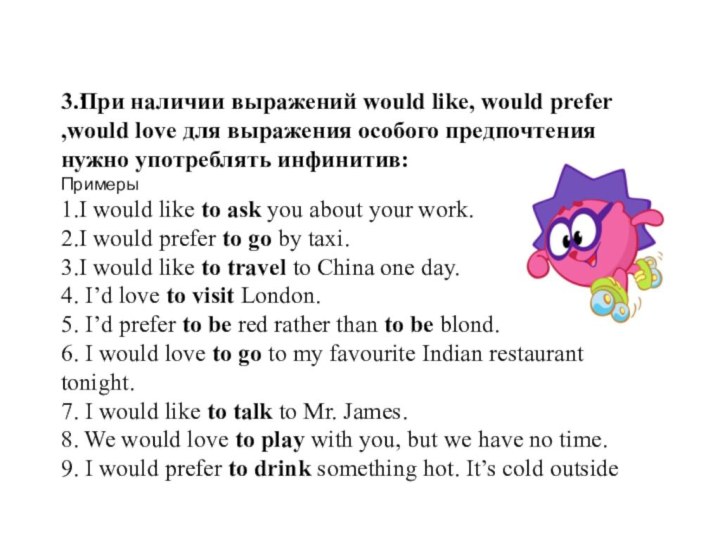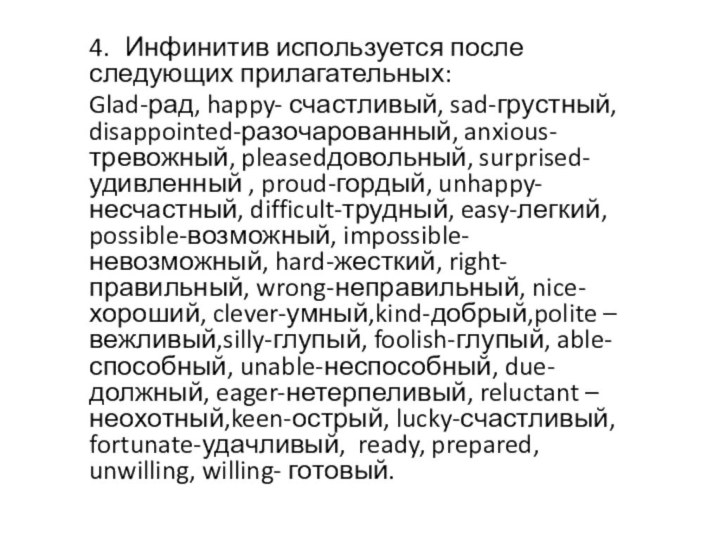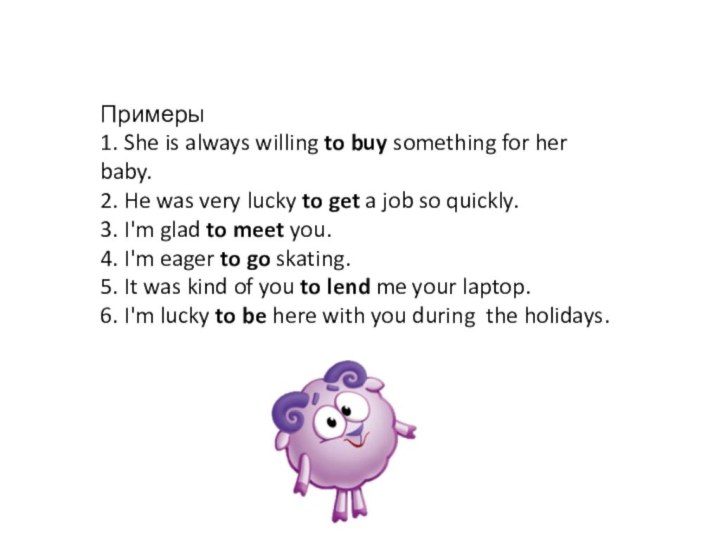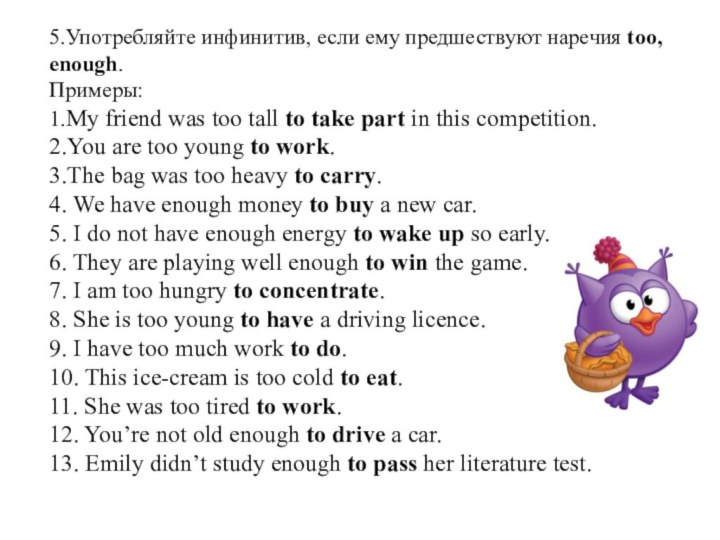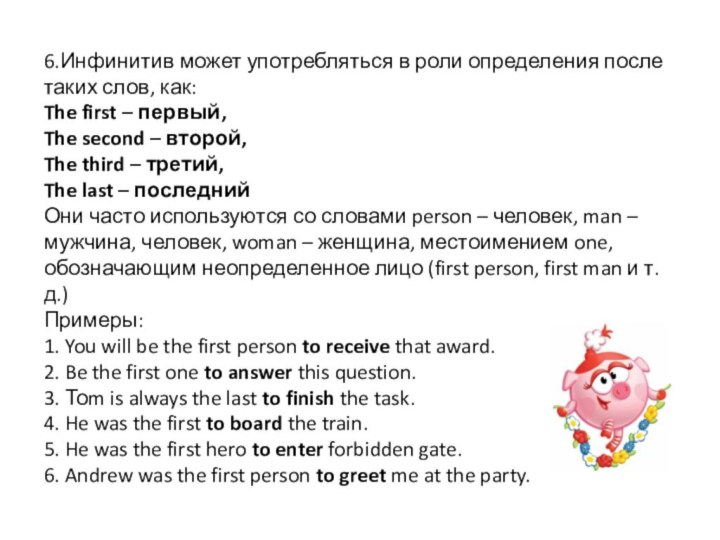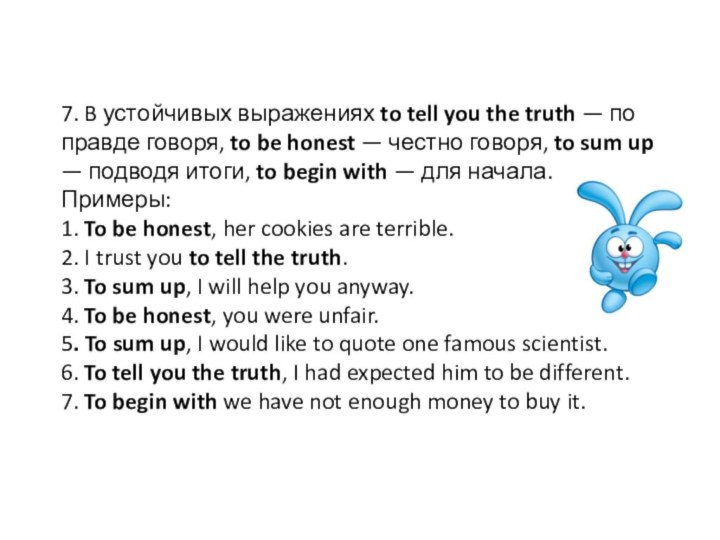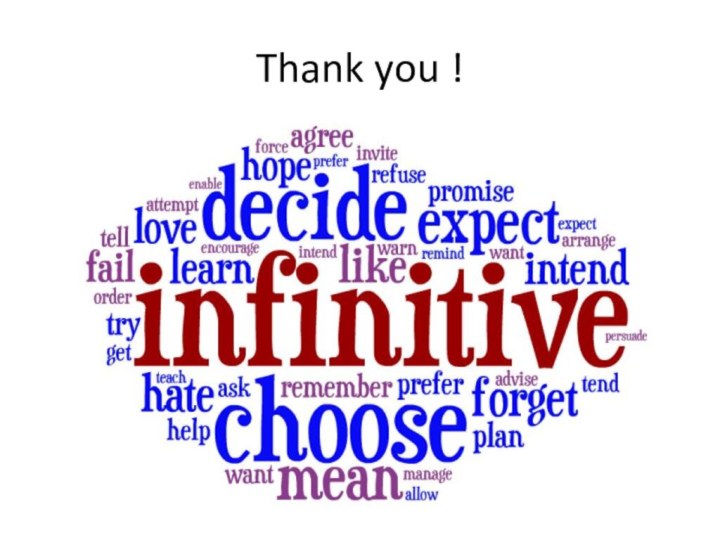Слайд 2
В большинстве случаев перед инфинитивом стоит частица to.
Слайд 3
1. для выражения цели или намерения (to =
in order to or so as to)
Примеры:
1.He did it
to help her.
2.She returned home to ask for some extra money.
3.She came here to study.
4. We are leaving in ten minutes to catch the train to London.
Слайд 4
2.после некоторые глаголов ,обозначающих действия,относящиеся к будущему. (agree
- соглашаться, appear- появляться, decide-решать, expect -ожидать, hope-надеяться, plan-строить планы,
, promise- обещать, refuse- отказываться, want- хотеть)
Примеры:
1.I want to go home.
2.He hopes to see them soon.
3.I wanted to take my dog to the park yesterday.
4.Why did you refuse to conduct these negotiations?
5. He refused to help them.
6.He did not promise to do it.
7. We expected Mike to come sooner.
8. She agreed to help me.
9.He promised to write to me every week.
10. My children refuse to drink milk.
Слайд 5
.
3.При наличии выражений would like, would prefer ,would
love для выражения особого предпочтения нужно употреблять инфинитив:
Примеры
1.I would
like to ask you about your work.
2.I would prefer to go by taxi.
3.I would like to travel to China one day.
4. I’d love to visit London.
5. I’d prefer to be red rather than to be blond.
6. I would love to go to my favourite Indian restaurant tonight.
7. I would like to talk to Mr. James.
8. We would love to play with you, but we have no time.
9. I would prefer to drink something hot. It’s cold outside
Слайд 6
4. Инфинитив используется после следующих прилагательных:
Glad-рад, happy- счастливый, sad-грустный,
disappointed-разочарованный, anxious-тревожный, pleasedдовольный, surprised-удивленный , proud-гордый, unhappy-несчастный, difficult-трудный, easy-легкий,
possible-возможный, impossible-невозможный, hard-жесткий, right-правильный, wrong-неправильный, nice-хороший, clever-умный,kind-добрый,polite –вежливый,silly-глупый, foolish-глупый, able-способный, unable-неспособный, due-должный, eager-нетерпеливый, reluctant –неохотный,keen-острый, lucky-счастливый, fortunate-удачливый, ready, prepared, unwilling, willing- готовый.
Слайд 7
Примеры
1. She is always willing to buy something
for her baby.
2. He was very lucky to get
a job so quickly.
3. I'm glad to meet you.
4. I'm eager to go skating.
5. It was kind of you to lend me your laptop.
6. I'm lucky to be here with you during the holidays.
Слайд 8
5.Употребляйте инфинитив, если ему предшествуют наречия too, enough.
Примеры:
1.My
friend was too tall to take part in this
competition.
2.You are too young to work.
3.The bag was too heavy to carry.
4. We have enough money to buy a new car.
5. I do not have enough energy to wake up so early.
6. They are playing well enough to win the game.
7. I am too hungry to concentrate.
8. She is too young to have a driving licence.
9. I have too much work to do.
10. This ice-cream is too cold to eat.
11. She was too tired to work.
12. You’re not old enough to drive a car.
13. Emily didn’t study enough to pass her literature test.
Слайд 9
6.Инфинитив может употребляться в роли определения после таких
слов, как:
The first – первый,
The second – второй,
The third
– третий,
The last – последний
Они часто используются со словами person – человек, man – мужчина, человек, woman – женщина, местоимением one, обозначающим неопределенное лицо (first person, first man и т. д.)
Примеры:
1. You will be the first person to receive that award.
2. Be the first one to answer this question.
3. Тоm is always the last to finish the task.
4. He was the first to board the train.
5. He was the first hero to enter forbidden gate.
6. Andrew was the first person to greet me at the party.
Слайд 10
7. B устойчивых выражениях to tell you the
truth — по правде говоря, to be honest —
честно говоря, to sum up — подводя итоги, to begin with — для начала.
Примеры:
1. To be honest, her cookies are terrible.
2. I trust you to tell the truth.
3. To sum up, I will help you anyway.
4. To be honest, you were unfair.
5. To sum up, I would like to quote one famous scientist.
6. To tell you the truth, I had expected him to be different.
7. To begin with we have not enough money to buy it.
